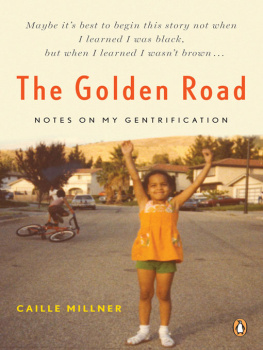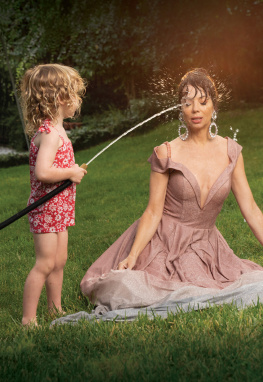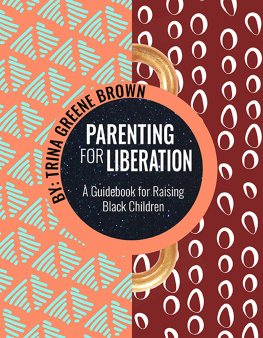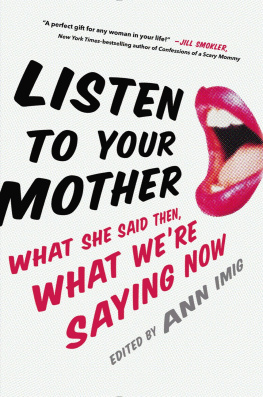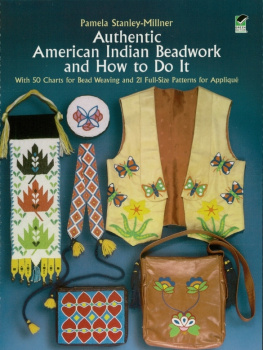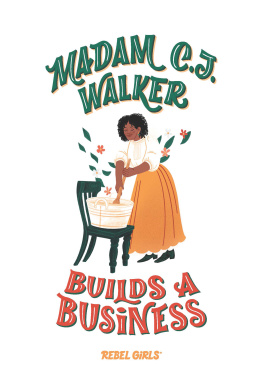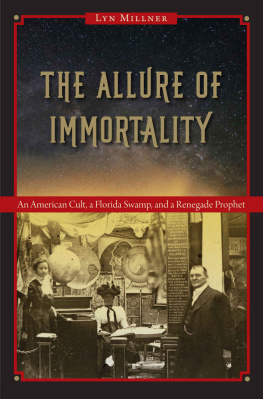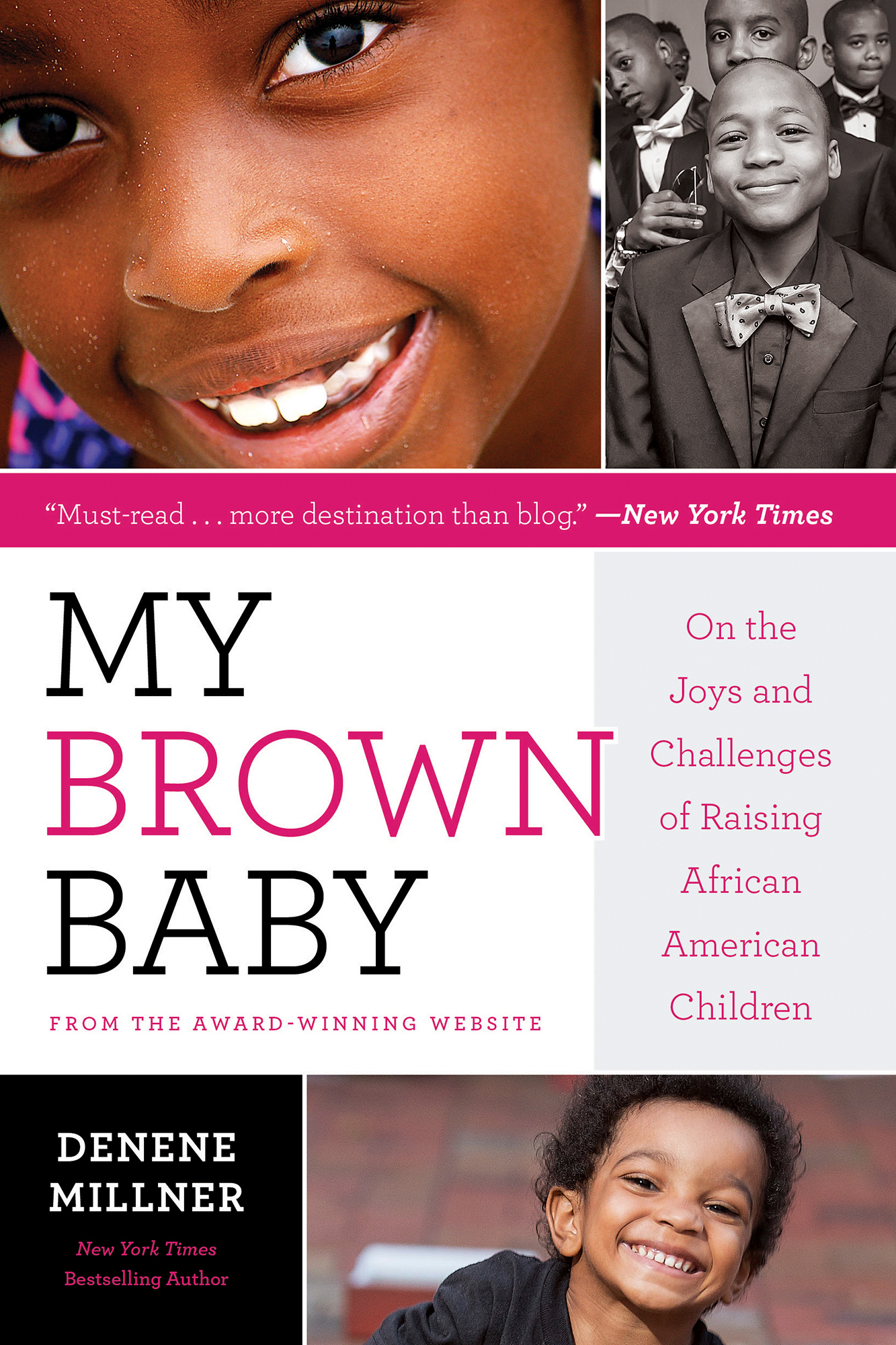Contents
Guide

SIMON & SCHUSTER
1230 Avenue of the Americas, New York, New York 10020
www.SimonandSchuster.com
Text copyright 2017 by Denene Millner
Jacket photographs copyright 2017 by Denene Millner and Erskine Isaac
Previously published in 2017 by Bolden Books, an imprint of Agate Publishing
All rights reserved, including the right of reproduction in whole or in part in any form.
SIMON & SCHUSTER and colophon are registered trademarks of Simon & Schuster, Inc.
For information about special discounts for bulk purchases, please contact Simon & Schuster Special Sales at 1-866-506-1949 or .
The Simon & Schuster Speakers Bureau can bring authors to your live event. For more information or to book an event, contact the Simon & Schuster Speakers Bureau at 1-866-248-3049 or visit our website at www.simonspeakers.com.
CIP data for this book is available from the Library of Congress.
Jacket design by Morgan Krehbiel
Front jacket photographs copyright 2017 by (clockwise from top left) Denene Millner, Erskine Isaac, and Erskine Isaac
ISBN 978-1-5344-7650-9
ISBN 978-1-5344-7649-3 (eBook)
For my Girlpies, Mari and Lila, who taught my heart to sing
Mama exhorted her children at every opportunity to jump at de sun. We might not land on the sun, but at least we would get off the ground.
Z ORA N EALE H URSTON
As their mother, your job is to keep the kids from killing their fool selves.
B ETTYE M ILLNER
INTRODUCTION
I STARTED M Y B ROWN B ABY on a whim in September 2008, back when the Barack Obama vs. John McCain presidential election was in full gear and the pregnancy of Sarah Palins teen daughter, Bristol, was setting the news cycles on fire. My first post questioned how the pregnancy of lil Miss Bristol would have been viewed if she were, oh, say, a black teenagera conversation that was being had by black moms everywhere, but was virtually ignored in every news story/blog post/TV analysis from here to Wasilla.
It was an observation that combined the two things I love writing about mostblack folk and parentingand I thought it a fitting debut post for MyBrownBaby, a space I created for African American moms looking to lend their critical but all-too-often ignored voices to the national parenting debate.
MyBrownBaby is irreverent. Funny. Full of posts that make you think. Maybe even say, Amen! because it reminds you of whats going on behind your closed door, with your family. Its a place where African American parents and parents of black children and their opinions matter, and are heard, respected, and revered. For their poignancy and strength. For their intelligence and authenticity.
Because they deserve it.
Of course, MyBrownBaby does not come without its detractors; apparently, the word brown in my blog title makes some peoplemainly white womenfeel some kind of way about my posts, subject matter, and intent, and some are even bold enough to stomp onto the site questioning why, if everyone wants to be celebrated and recognized as equal, I would segregate myself with a blog about skin color.
Let me be very clear: Ive been a working journalist since my senior year in high school, and in my lengthy career, Ive covered everything from murder and politics to entertainment and parenting and everything in between with great joy, care, and skill. Not every story of mine has been about black people. One of these days Ill give you the lowdown on the time I interviewed George Clooney in a swanky New York City hotel, or what it was like to hold a miniature tape recorder in former New York City mayor Rudolph Giulianis face during a mayoral press conference.
But, Im an African American mom with brown babies, and I take great pleasure in writing about the issues moms of color and mothers of children of color face as we raise our kids. And while I happily cosign the idea that at the base of it, we moms all want the same things for our childrenfor them to be happy, healthy, smart, kind, honest, trustworthy, successful human beingswe simply do not all parent the same, and there absolutely are issues that I deal with as an African American mom that white moms would never have to think about if theyre not raising a brown child.
A for instance: once I wrote about what it takes to groom and style a little black girls hair (a post inspired, ironically, by a raging debate about whether Angelina Jolie does a good enough job combing her black daughters hair). Wild guess, but Im going to go on ahead and assume that styling coarse, curly hair is not something most white moms with white children think about, like, ever. But as the mother of two black girls, I have to think about it every day. Still, I cant look for information on this simple, everyday topic in most parenting books/magazines/websites/blogs that proclaim to be for and about all moms to get the valuable info I need to avoid damaging my daughters thick, curly manes.
Similarly, its hard to find, in mainstream media, information on how to cope with the fear that comes with raising a super smart, super sweet, super handsome, super big, super black teenage son in a society full of folks who still judge black boys by the color of their skin, rather than the content of their character.
Or how to fight against the long-held notion in our community that breastfeeding babies is nastyor worse, something that only white moms do.
Need I go on?
See, I write about African Americans not to point fingers at white moms, but to help black ones. Is this segregating myself? Nope. Its providing a service for us moms who need the information but cant find it or who just want someone to commiserate with themhelp us sort through the beautiful struggle that comes with being black parents in America.
This is done with open arms, a lot of love, and the deep belief that though we may come from separate places and have different backgrounds, we are ALL moms who want the same things for our families, and especially for our children.
My Brown Baby: The Joys and Challenges of Raising African American Children is a collection of my favorite posts over the last eight yearspieces that speak to not only my journey as a mother, but the collective experiences of African American mothers, our joys, our fears, our sorrows, and our triumphs. Though some were written when my girls were just wee-bits, they are still heartfelt to me, and relevant to moms who are thinking about having children, who are new moms, or who are veterans in this motherhood journey. Choosing the best among eight years of text was no easy task: with nearly two thousand posts on my server, I was charged with pouring through each piece with the specific goal of figuring out which among them held the most heft and meaning across the span of motherhood, from pregnancy consideration and conception, to birth and early childhood, to the special role we take on as parents of teens and tweens. Each stage, after all, is an inevitable part of parenting, if were lucky enough to make it through each round. Still, I wanted this book to be more than just the stages of parenting; I wanted it to be the very essence of black parenting. To that end, once I organized the posts by stages of parenting, I chopped and screwed them into topics unique and important to parents raising children of color, the most significant among them being racism and its effect on how others treat us, and how we protect ourselves and our babies from the problems that come with it; pop culture and its hold on how we see ourselves and interact within a society that sees brown, curvy, and kinky-haired as less than; the politics of nurturing, growing, and loving our childrens natural hair; what it takes to face off against (and, in some cases, embrace) stereotypes saddled on black parents and our children; the politics of black parenting; and, on a more personal level, learning how to love, respect, and protect ourselves through it all. What emerges is a powerful essay collectionequal parts personal narrative, observation, and analysisthat speaks to the totality of what its meant to be a modern, thoughtful, engaged black parent in America.



